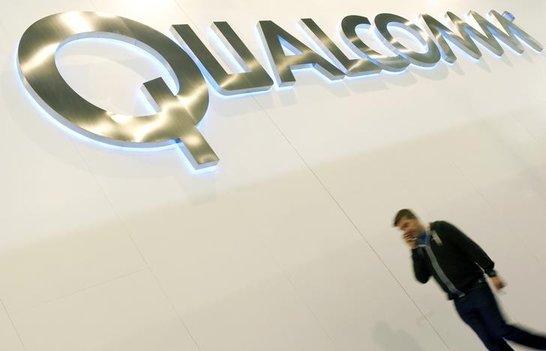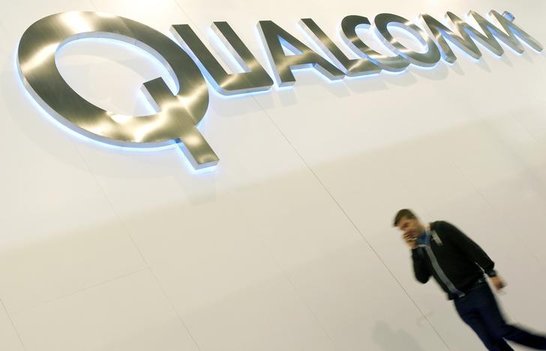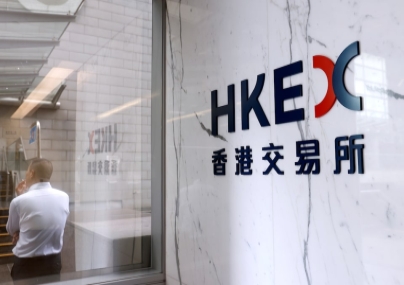
By Michael Martina and Se Young Lee
Chinese antitrust officials have met with their South Korean counterparts to discuss violations by U.S. chipmaker Qualcomm Inc, sources say, as Beijing reaches out to regulators overseas to complete a case that could result in record fines at home.
Qualcomm is one of at least 30 foreign firms to come under scrutiny as China seeks to enforce a 2008 anti-monopoly law - efforts some critics say have unfairly targeted overseas businesses, raising protectionism concerns.
The Korea Fair Trade Commission (KFTC) fined San Diego-based Qualcomm more than $200 million in 2009 for abusing its dominant market position, but the stakes are bigger in China, where an investigation by the National Development and Reform Commission (NDRC) could trigger changes to Qualcomm's licensing deals and fines of as much as a tenth of a company's annual revenue.
Qualcomm had total revenues of almost $25 billion in the year to Sep. 29, 2013 - about half of it in China.
"The Chinese authorities were very interested in how South Korea handled such issues and asked a lot of questions about South Korea's experiences," says a person who was present at meetings in May and June between the KFTC and the NDRC's price supervision and anti-monopoly bureau.
It's unlikely the NDRC could use exactly the same rationale as South Korea against Qualcomm, added the person, who didn't want to be named because of the sensitivity of the case.
"What China takes most exception to is that royalties on intellectual properties are comparatively higher in China. But high price itself shouldn't be an antitrust matter. It's only a problem when there are elements like discriminatory practices," the person says.
Qualcomm has been under investigation by the NDRC, one of China's three antitrust regulators, since November last year over how it licenses its patents and prices its chipsets.
Exchanges between regulators are not uncommon, but some experts say the NDRC has relied on pressure tactics instead of detailed economic analysis to drive its cases. That the NDRC went to the KFTC months after the case was announced, they say, could indicate the bureau is looking for a legal justification for a case it had already launched.
There are concerns that a central aim of the meetings between China and South Korea was to "solicit advice in an economic argument against Qualcomm," a person in the U.S. business community familiar with the case says. "It's putting the cart before the horse. They have reached a conclusion and attempted to get the facts later."
Back to top‘Thorough exchanges’
In a statement about the meeting that took place in South Korea, the KFTC said: "China's NDRC, seeking to advance its regulatory enforcement, requested that the Fair Trade Commission share economic analysis techniques used to deal with actual cases."
The NDRC antitrust bureau, its delegation led by Director General Xu Kunlin, said in statements issued after the meetings that the two sides held "thorough exchanges."
Xu, an outspoken advocate of expanding the use of China's anti-monopoly law, has publicly stated that his bureau is hamstrung by understaffing. That, lawyers say, is one likely element behind the bureau's reputation of employing less rigorous analysis in its investigations.
At a conference in May, Xu said that because he had only around 40 staff - compared to hundreds at U.S. and European agencies - he had to rely on tip-offs of violations when pursuing cases. "If you increased my staff by 100 workers, perhaps then I could actively investigate," he said.
"I think everybody would agree they are understaffed - they don't have enough people - and they are very new at this," says Peter Wang, an antitrust expert and Shanghai-based partner at law firm Jones Day. "It's often easy to find theories for possible antitrust problems, but it takes an extensive amount of experience to be in a position to make good decisions about when something is likely to be a real problem and, just as important, when it's not."
Nonetheless, a slew of recent high-profile probes into overseas firms has rekindled concerns that Beijing may be using the investigations to support domestic industry.
Last month, the NDRC fined Japanese auto parts makers a record 1.235 billion yuan ($201 million) for manipulating prices in China. The agency has also said it would punish Audi and Fiat SpA's Chrysler for monopoly practices, and last year hit foreign milk powder makers with hefty fines.
The U.S. Chamber of Commerce in April sent a private letter to Secretary of State John Kerry and Treasury Secretary Jacob Lew urging Washington to get tough with Beijing on its use of the Anti-Monopoly Law to pursue "China's industrial policy goals."
The issue was raised at high-level strategic talks between Washington and Beijing in July.
---------------------------------------------------------------------------------------------------------------------------------
Back to top‘Vague or unspecified provisions’
Foreign companies are increasingly concerned they are being targeted by Chinese regulators, finds Michael Martina of Reuters
Foreign companies are increasingly concerned they are being targeted by Chinese regulators, a U.S. business lobby said last month, as a Chinese antitrust agency defended probes into firms such as U.S. chipmaker Qualcomm Inc.
The American Chamber of Commerce in China is the latest business lobby to air its grievances over a series of investigations scrutinising at least 30 foreign firms, as China seeks to enforce a 2008 anti-monopoly law.
There are growing perceptions that multinational firms are under "selective and subjective enforcement" using "legal and extralegal approaches," the Chamber said in a report.
A survey of 164 members showed 49 percent respondents felt foreign companies were being singled out in recent pricing and anti-corruption campaigns, compared to 40 percent in a late 2013 survey of 365 members. Twenty five percent said they were uncertain, or did not know, and 26 percent said no.
Chamber Vice-Chairman Lester Ross told reporters the major expansion of enforcement was welcome in principle, but regulators were using "extralegal" means to conduct investigations.
"They have taken what are, in many instances, vague or unspecified provisions in the law and moved to enforce them, and sought to enforce those means through processes that do not respect the notion of due process or fairness," Ross said.
Sixty percent respondents in the survey also reported they felt foreign business was becoming less welcome in China.
Back to top‘Transparent and just’
In an April letter to Secretary of State John Kerry and Treasury Secretary Jacob Lew, the U.S. Chamber of Commerce urged Washington to get tough with Beijing on its use of anti-competition rules, which it said had been seized by China to advance industrial policies that nurture domestic companies.
The European Union Chamber of Commerce in China in August expressed its concern over the antitrust investigations, saying China was using strong-arm tactics and appeared to be unfairly targeting foreign firms.
Xu Kunlin, director general of price supervision and the anti-monopoly bureau at the National Development Reform Commission (NDRC), reiterated that local and foreign companies were being treated equally by the agency.
"Such accusations are groundless and baseless," Xu told the official China Daily newspaper.
"Some of the NDRC monopoly investigations involve overseas multinationals, but that does not mean that we are targeting them," Xu said in an interview with the paper.
"Some business operators in China have failed to adjust their practices in accordance with the anti-monopoly law," he added. "Others have a clear understanding of the laws, but they take the chance that they may escape punishment."
Xu said the NDRC, one of China's three antitrust regulators, was also handling cases involving state-owned firms and Chinese private sector companies.
The automotive industry has been in focus for the last two or three years, Xu said. The NDRC in August slapped a record fine of $201 million on 12 Japanese auto makers it said had engaged in price manipulation.
The NDRC is investigating Qualcomm's local subsidiary after it said in February that the company was suspected of overcharging and abusing its market position in wireless communication standards - accusations that could lead to record fines of more than $1 billion.
Another antitrust regulator, the State Administration for Industry and Commerce, said last month it had given Microsoft Corp 20 days to reply to queries on the compatibility of its Windows operating system and Office software suite amid its probe into the world's largest software company.
China's Foreign Ministry spokesman Qin Gang responded to a question on the chamber's paper at a regular press briefing, saying he hoped foreign companies "will abide by Chinese law."
"Anti-monopoly is to protect consumers' rights and to create a more open, fair and impartial market environment," Qin said. "It is transparent and just."
Back to top



